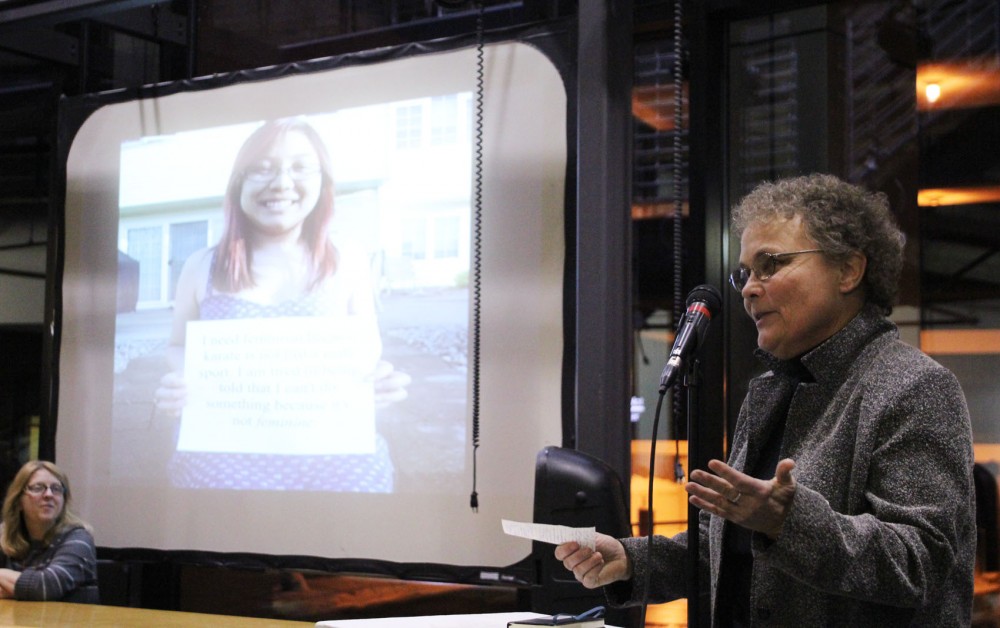Students, graduates and faculty members gathered Thursday to celebrate the 40th anniversary of what’s now the Gender, Women and Sexuality Studies department.
The department began in 1973 as a program for women’s studies and has since expanded to include gender and sexuality. Today, the department is one of the oldest women’s studies programs in the nation and one of few to offer a Ph.D. program.
Graduates, faculty and community members took turns at the podium at the Regis Center for Art to discuss the impact the department has had on their lives and on the University community as a whole. Among the speakers was Minneapolis mayoral candidate and current City Councilman Gary Schiff.
Schiff earned his bachelor’s degree from the department of Gender, Women and Sexuality Studies, and got his master degree at the University’s Humphrey School of Public Affairs.
“People are surprised when I tell them that it wasn’t the urban planning program at the Humphrey [School] that best prepared me to do my job — it was the women’s studies department,” he said.
Today the department has nine core faculty members and an array of major and minor programs.
On top of feminism, the department’s courses analyze the politics and sociology of sex and gender.
Other speakers at the event included the College of Liberal Arts Dean James Parente, graduates and faculty members who discussed the difficulties the department faced in establishing itself in academics.
Associate professor Jacquelyn Zita, a 33-year veteran of the department who recently retired, said while she had fond memories about the department, it wasn’t always easy.
“It was rough. It was very rough in the beginning,” Zita said.
Often, people simply didn’t accept women’s studies as an academic field, said professor Naomi Scheman, who began working the department in 1979.
Scheman spoke about the difficulties faculty members faced each time they wanted to make a change to staff or curriculum.
“Every time we wanted something we, in every case, ended up pretty much getting what we wanted, but only after going through our rituals of degradation,” Scheman said.
When women’s studies Ph.D. candidate Katie Bashore was searching for the right school to attend as a graduate student, her counselor lead her to the University’s program.
Though Bashore, a self-described “coast girl,” wasn’t completely sure she wanted to live in the Midwest, she eventually landed on the University.
“I knew that if I want to do the project I want to do,” she said, “it’s not going to happen anywhere else.


